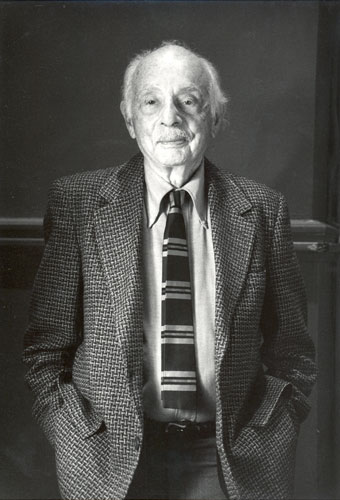 |
“A Journal to My Daughter” (Poem not included; text can be found in The Poems of Stanley Kunitz: 1928-1978.) In his works, Stanley Kunitz seems to repeatedly return to the idea of parent-child relationships, particularly the importance of the one between fathers and sons. Having lost his father to suicide shortly before his birth, Kunitz seems to have taken this experience (manifested in the absence of his father) and wrestled with it in his poetry. In “A Journal to My Daughter,” Kunitz continues to examine this theme. In the poem, the speaker (likely Kunitz himself) is addressing the daughter he has neglected, recalling memories of her birth and childhood, and trying to bridge the gap between them. Your turn, Grass of confusion. You say you had a father once: his name was absence. He left, but did not let you go. Part of him, more than a shadow, beckoned down corridors, […] In the crack of a divided house grew the resentment-weed. […] Family of anthologists! Collector of injuries! In the above lines, Kunitz seems to emphasize the pain felt at the absence of a father (see use of: “crack,” “divided,” “resentment-weed,” and “injuries”), as well as the haunting aspect of longing for such a relationship (“shadow,” “corridors”). What is even more interesting, however, is that he seems to suggest that this is a repeating cycle (“Family of anthologists! / Collector of injuries!”). We also see in this poem his tendency to make use of nature-based imagery: “Grass of confusion,” “resentment-weed,” and, later, images of chipmunks, mice, shrews, fireflies, and an eclipse, as well as persons referenced by natural images – “uncle-bear” and “papa-tree”. Memory also serves a strong part. What I think makes this poem great, though, is that it, like “The War against the Trees,” shows Kunitz’s skill with language; in his later poems, Kunitz seemed to make the most meaning with seemingly simple lines.
These lines start out with a formal sort of proposition – “I propose / that we gather our affections,” and end with an endearment and the father admitting that he cares. This structure seems to reflect the whole point of the poem – the father’s desire to rebuild a relationship with his daughter. Overall, it is an amazing poem.
|